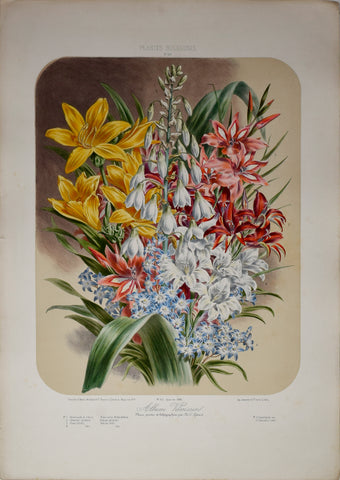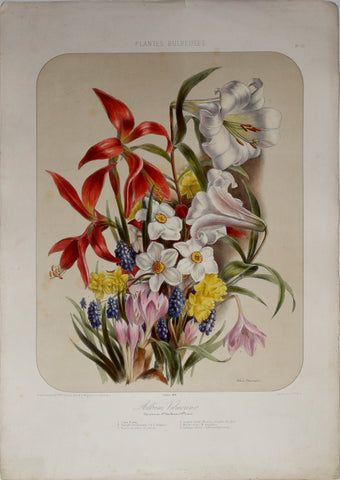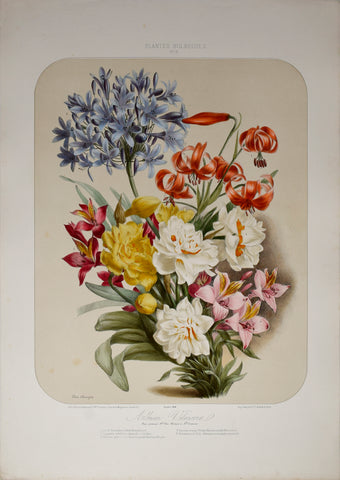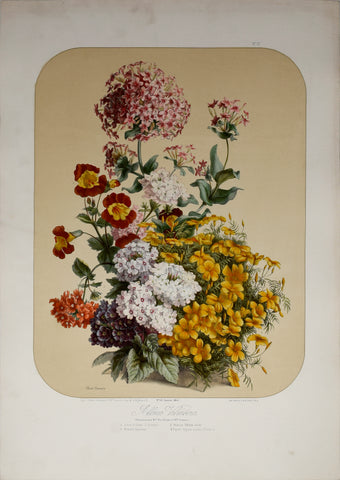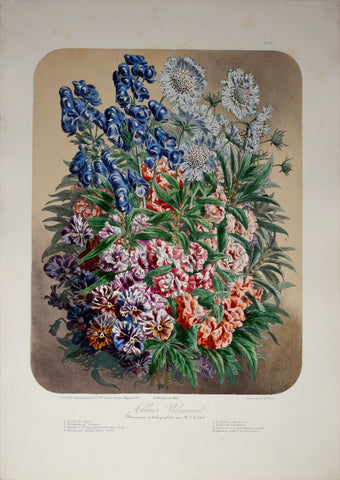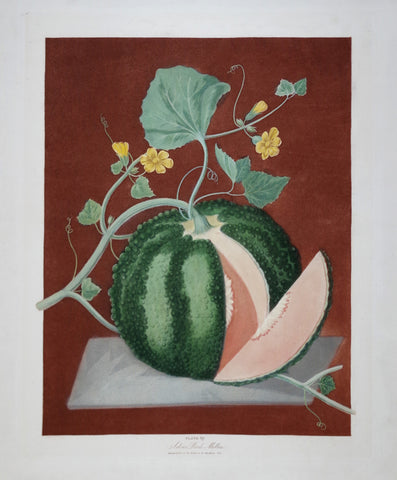
George Brookshaw (1751-1823), Silver Rock Mellon, Pl LXVII
George Brookshaw (1751-1823)
Silver Rock Mellon, Pl LXVII
from Pomona Britannicaa
London, 1804-1812
Engravings with original hand-coloring
Sheet size: approx. 22 3/4 x 18 1/4"
George Brookshaw's splendid "Pomona Brittanica" is a masterpiece among 19th-century British flower books. The publication of the "Pomona" marked the re-emergence of the acclaimed artist into the public eye after a total disappearance of nearly a decade. Initially a cabinet-make specializing in painted furniture decorated with borders of flowers, Brookshaw appears to have abandoned this career at about the same time as he parted company with his wife and began living with Elizabeth Stanton, and under the assumed name of G. Brown (c.1794-1804). During this time he earned a living as a teacher of flower-painting and on the proceeds of his first painting manual "A New Treatise on Flower Painting", 1797.
Characterized by the highest standards of production and artistic quality, the superb illustrations that Brookshaw drew and engraved for the "Pomona" remain perhaps the most sumptuous and distinctive of the early 19th century. This magnificent and stylistically unique work took Brookshaw nearly ten years to produce. Rivaled only by Dr. Robert Thornton's "Temple of Flora," Brookshaw's 'Pomona' is considered to be the finest British botanical work from a time when England dominated the field with a very large number of great books. Brookshaw's fine illustrations make excellent use of the rich, modulated tones that the aquatint process creates. The elegantly arranged and richly colored fruits emerge from deep brown backgrounds or float on a softly mottled light ground, creating a presence unlike that of any other botanical illustrations. Brookshaw asserts in the preface that the "Pomona Britannica" was an enduring work created for the enjoyment and edification of "succeeding generations."
Characterized by the highest standards of production and artistic quality, the superb illustrations that Brookshaw drew and engraved for the "Pomona" remain perhaps the most sumptuous and distinctive of the early 19th century. This magnificent and stylistically unique work took Brookshaw nearly ten years to produce. Rivaled only by Dr. Robert Thornton's "Temple of Flora," Brookshaw's 'Pomona' is considered to be the finest British botanical work from a time when England dominated the field with a very large number of great books. Brookshaw's fine illustrations make excellent use of the rich, modulated tones that the aquatint process creates. The elegantly arranged and richly colored fruits emerge from deep brown backgrounds or float on a softly mottled light ground, creating a presence unlike that of any other botanical illustrations. Brookshaw asserts in the preface that the "Pomona Britannica" was an enduring work created for the enjoyment and edification of "succeeding generations."
We Also Recommend

